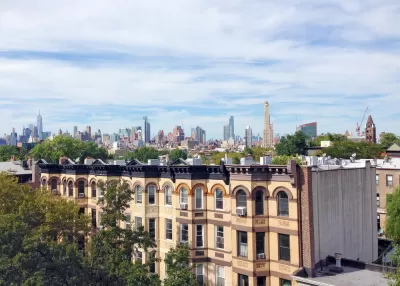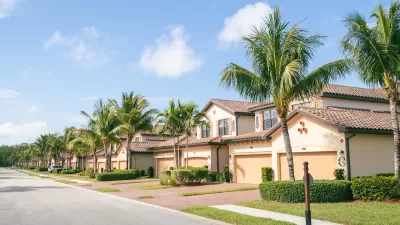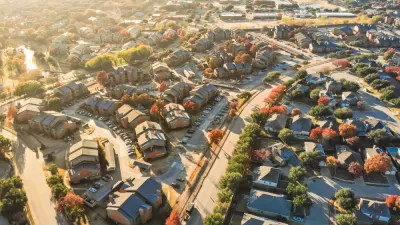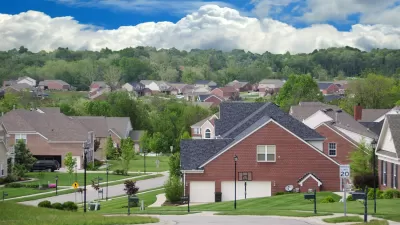Are HOAs in cities a good thing? Not always. Keep reading to learn more.

Are homeowners associations (HOAs) becoming more popular? The answer seems to trend toward "yes." It turns out that 60% of new single-family homes are involved in HOAs. This phenomenon has now started to develop in cities and includes apartments, townhouses, and condos as well.
Here's a look at three pros and three cons that residents might experience as a result.
1. Pro: They Make Utilities Cheaper
Those who partake in HOAs can enjoy various perks. These advantages include access to amenities and maintenance. HOAs also bundle utilities to make them more straightforward for members, so sewer, water, gas and more are one monthly expense.
The average utility bill can be extremely costly throughout America. These figures can sometimes be steeper in rentals due to factors like questionable construction work. The city overall might be pricier than towns nearby, as well. It's always a bonus for residents to know they won't have to handle fluctuating utility bills every month.
2. Pro: They Take Safety Measures
Many people assume all cities are unsafe, but that's not entirely accurate. Areas like Raleigh and Anaheim are examples of safe large cities in America. However, HOAs can be beneficial in places that see slightly higher crime rates. These efforts might not make cities safer as a whole, but HOAs promote more secure communities in their own way.
These groups are typically proactive about preventive safety measures. HOAs tend to have street lights and security cameras installed to create a safer environment for their residents. HOAs enforce specific community rules, too, which is a key reason why members join them. It’s also one that helps promote safety.
3. Pro: They Fix Neighborly Disputes
It can be tough to live in a building where neighbors exist on either side. There's no denying that urban environments can be just as noisy as they are exciting. HOAs can help mitigate neighborly disputes. That’s a plus for anyone who doesn’t want to deal with loud parties, barking dogs and other annoyances.
4. Con: They Often Create a Disconnect
There are many reasons why someone might relocate to a city rather than a suburb. The lively, fast-paced lifestyle is one. There’s also often a feeling of community. However, sometimes, HOAs can force members to focus more on their association than their city. This point can be a massive downside that may make people feel more separated than connected.
It's impossible for a place to truly thrive unless residents become involved. Take public health as an example. Residents can lead more fulfilling lives when they help increase community engagement around them. HOAs need to become more aligned with entities like city councils to ensure they don’t isolate themselves.
5. Con: They Can Contribute to Gentrification
Those familiar with American real estate history know that racial differences exist — and HOAs have played a distinct role in perpetuating them. It’s clear that even in 2021, HOAs aren’t exactly inclusive. They tend to be found in mostly affluent white neighborhoods rather than diverse middle- or lower-class communities.
This point doesn’t mean there aren’t any people of color who join HOAs. That said, HOAs can sometimes discriminate against their non-white residents. That’s a point people shouldn’t ignore as HOAs move into cities, where populations are typically racially diverse.
Do HOAs exist in low-income urban neighborhoods? No. It’s more likely for people of color to live in high-poverty locations, too. This data points to how city-based HOAs are disproportionately located in newly built, modern buildings where wealthier individuals reside.
As a result, HOAs can ultimately contribute to gentrification.
6. Con: They Require Monthly Expenses
There are times when living in a city can be pricey. That's true for both small and large cities throughout America. It can be enticing to join an HOA because they manage responsibilities for residents and bundle expenses like utilities. However, HOAs aren't free. They require a monthly membership fee that can add up to several hundred dollars, and often much more in some cities.
HOAs Have Their Ups and Downs
There are a few cases for having HOAs in cities. They can create safer, cleaner environment for residents. Unfortunately, HOAs also have various downsides that include racial inequality, steep prices and disconnected communities. It’s important to analyze every side so HOAs can appeal to residents everywhere.

Study: Maui’s Plan to Convert Vacation Rentals to Long-Term Housing Could Cause Nearly $1 Billion Economic Loss
The plan would reduce visitor accommodation by 25,% resulting in 1,900 jobs lost.

Alabama: Trump Terminates Settlements for Black Communities Harmed By Raw Sewage
Trump deemed the landmark civil rights agreement “illegal DEI and environmental justice policy.”

North Texas Transit Leaders Tout Benefits of TOD for Growing Region
At a summit focused on transit-oriented development, policymakers discussed how North Texas’ expanded light rail system can serve as a tool for economic growth.

Virginia Law Allows Judges to Mandate Speed Limiters
The law could set a new precedent for speed limiting tech on U.S. vehicles.

Comment: EPA Cuts will Send Atlanta Back to Eye-burning Ozone, Lung-damaging Smog, and Raw Sewage in the Chattahoochee River
A veteran political journalist takes stock of the hard-earned ground Georgia stands to lose with slashed environmental protection.

How Community Science Connects People, Parks, and Biodiversity
Community science engages people of all backgrounds in documenting local biodiversity, strengthening connections to nature, and contributing to global efforts like the City Nature Challenge to build a more inclusive and resilient future.
Urban Design for Planners 1: Software Tools
This six-course series explores essential urban design concepts using open source software and equips planners with the tools they need to participate fully in the urban design process.
Planning for Universal Design
Learn the tools for implementing Universal Design in planning regulations.
City of Santa Clarita
Ascent Environmental
Institute for Housing and Urban Development Studies (IHS)
City of Grandview
Harvard GSD Executive Education
Toledo-Lucas County Plan Commissions
Salt Lake City
NYU Wagner Graduate School of Public Service






























